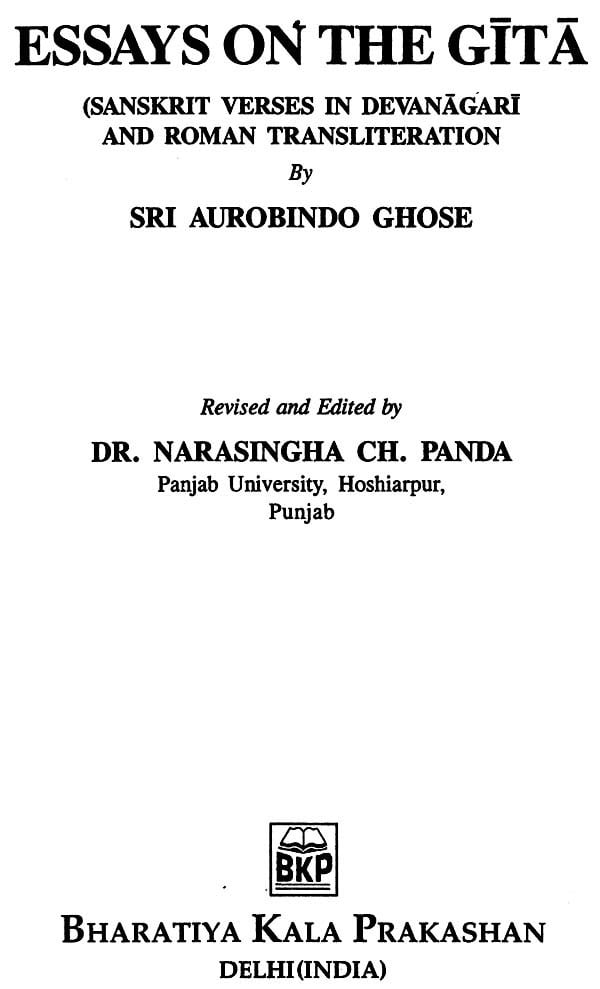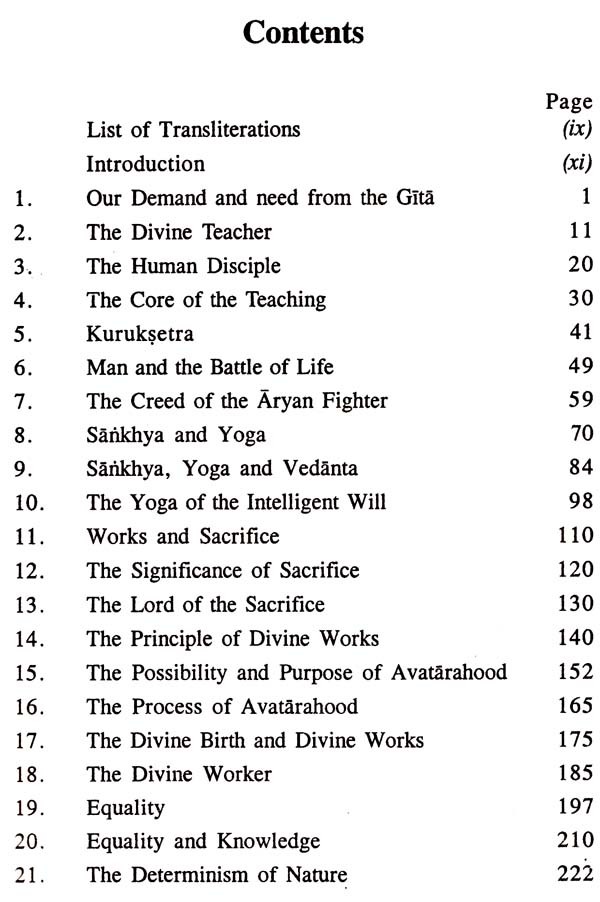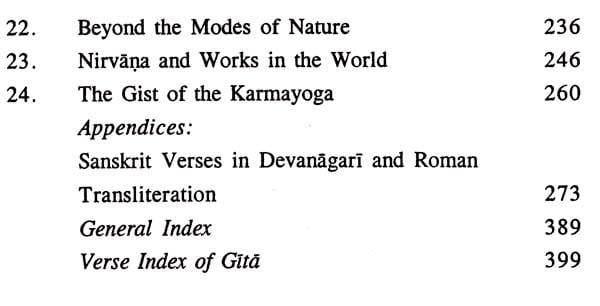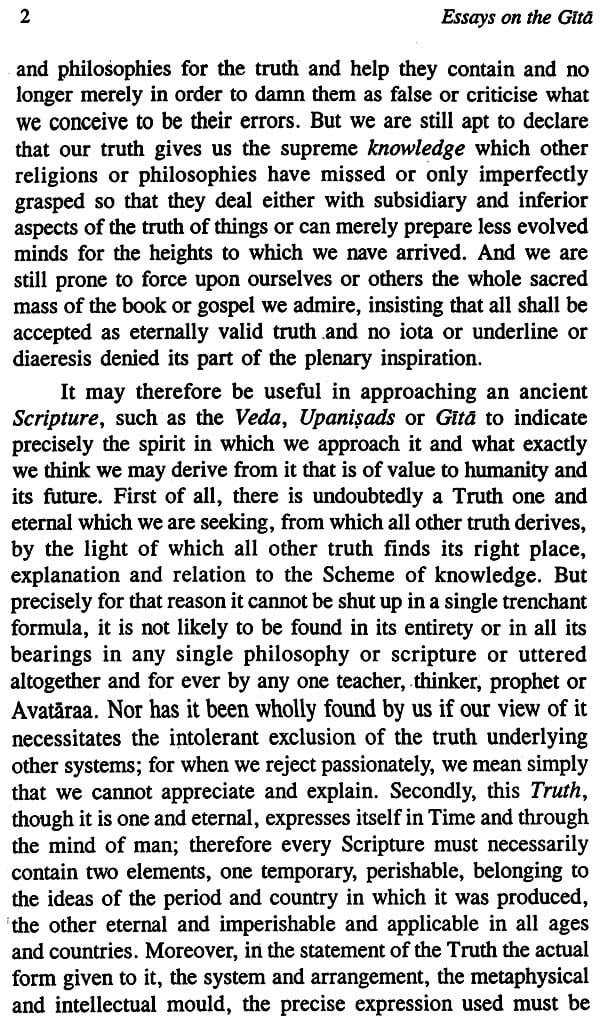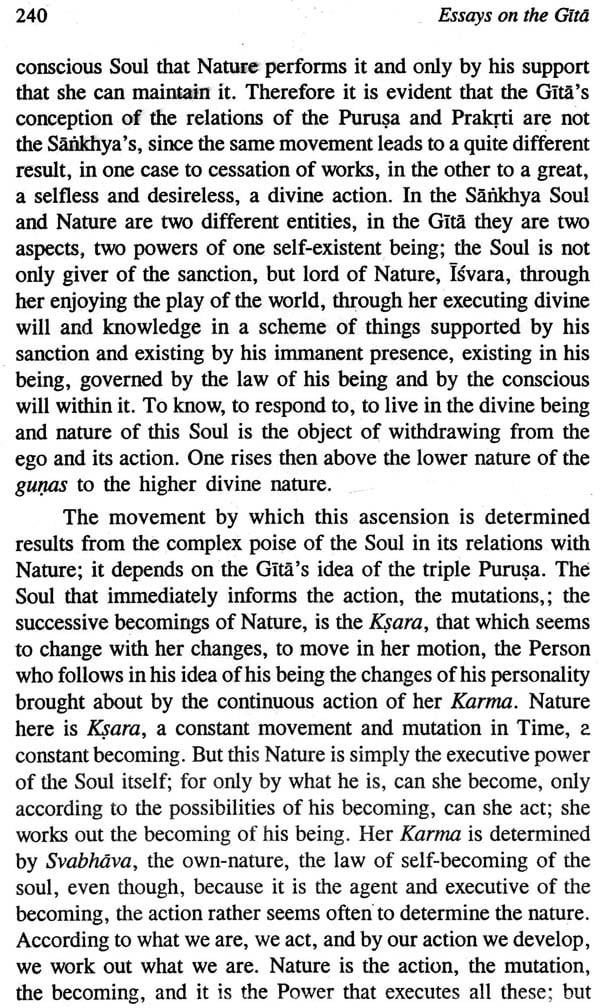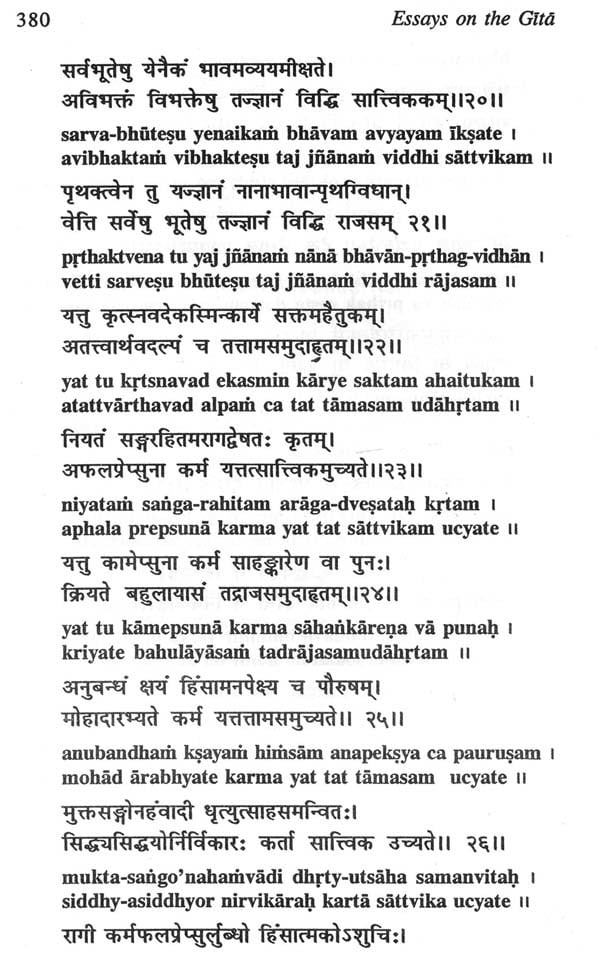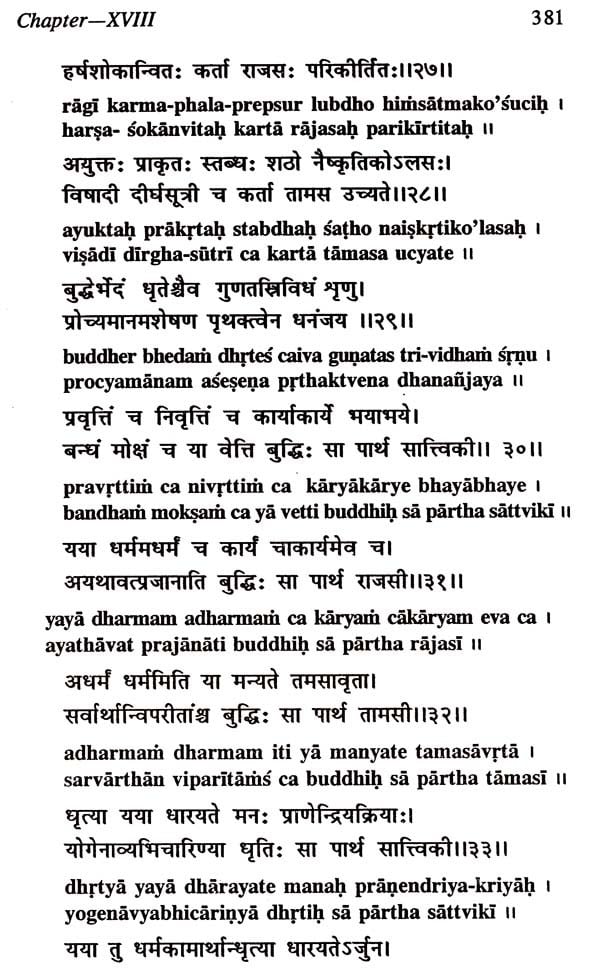
Essays on the Gita- Sanskrit Verses in Devanagari and Roman Transliteration By Sri Aurobindo Ghose
Book Specification
| Item Code: | AZE637 |
| Author: | N.C. Panda |
| Publisher: | Bharatiya Kala Prakashan |
| Language: | SANSKRIT TEXT WITH TRANSLITERATION AND ENGLISH TRANSLATION |
| Edition: | 2011 |
| ISBN: | 9788180901942 |
| Pages: | 422 |
| Cover: | HARDCOVER |
| Other Details | 9.00x6.00 |
| Weight | 630 gm |
Book Description
The 'Essays on the Gita' composed by Sri Aurobindo delineates the various aspects of the philosophy of Gita, to suit the present day aspirations and philosophical doctrines. Divided into twenty four sections, the book is a remarkable contribution to elevate the bewildered human consciousness in the present scenario. Moreover, the present edition is furnishing the original Sanskrit text of Gita in Devanagari script and its Roman transcriptions to meet the quest of the readers. A word Index is also appended to the work to help the researchers to grasp a particular aspect at first glance. Apart from these, this Edition would be the key to understand the philosophy of Sri Aurobindo and the true spirit of the Bhagavad Gait.
After Graduation Sanskrit) from Utkal University, Bhubaneswar, Post-graduation M.Phil., Kurukshetra University, obtained Ph.D. Degree in Vedic Studies from Panjab University, Chandigarh. addition to Dr also qualified other Indological branches, like: Buddhism (Acharya), Philosophy (Acharya), and C.C. German.
Presently, Panda Associate Editor Vishveshvaranand Indolo Research Journal. As ardent scholar and successful researcher Ideology, he has contributed number learned has edited some valuable books, Perspectives Indian Thought; Upadeṣaśasri (Revised Ed.); Buddhism (Päli with English trans. Vols, Compiled & Ed.); Kala Lexicon, Vols. (Ed.); Saundaryalahari (Critically Edited); Sankhya-kärikā (Rev. Ed.); Mahānirvāṇa Tantra (Ed.); Mahāvamsa (Rev. Ed.), Aspects of Vedanta (Ed.), Essays the (Ed.), Life of Gautama Buddha (Compiled & Ed.); Gods Goddess Indian Ed.), etc.
Sri. Aurobindo's life and Philosophy constitute a golden the chain that the with the present life. Today world knows Aurobindo saint Pondicherry, who worked spreading a philosophy of life, on the teachings the Rgveda, the Upanisads, the Vedanta Sutra the Bhagavad and supported the modern scientific knowledge of man's potentialities greatness. Sri Aurobindo has distinct contribution in field Philosophy, education and culture, which vastly influencing our course social evolution.
Yogi Aurobindo was 1872 A.D., some fifteen years the outbreak the so-called Sepoy Muting (1857 an effort overthrow British domination India. Aurobindo's father believed that must adopt western methods of civilization. He that children should given western education. Thus, Aurobindo got his early education the Loretto convent at Darjeeling. In 1879 D., Aurobindo his brothers sent England for further education. 1885 A.D., Aurobindo sent St. Paul's London.
**Contents and Sample Pages**
